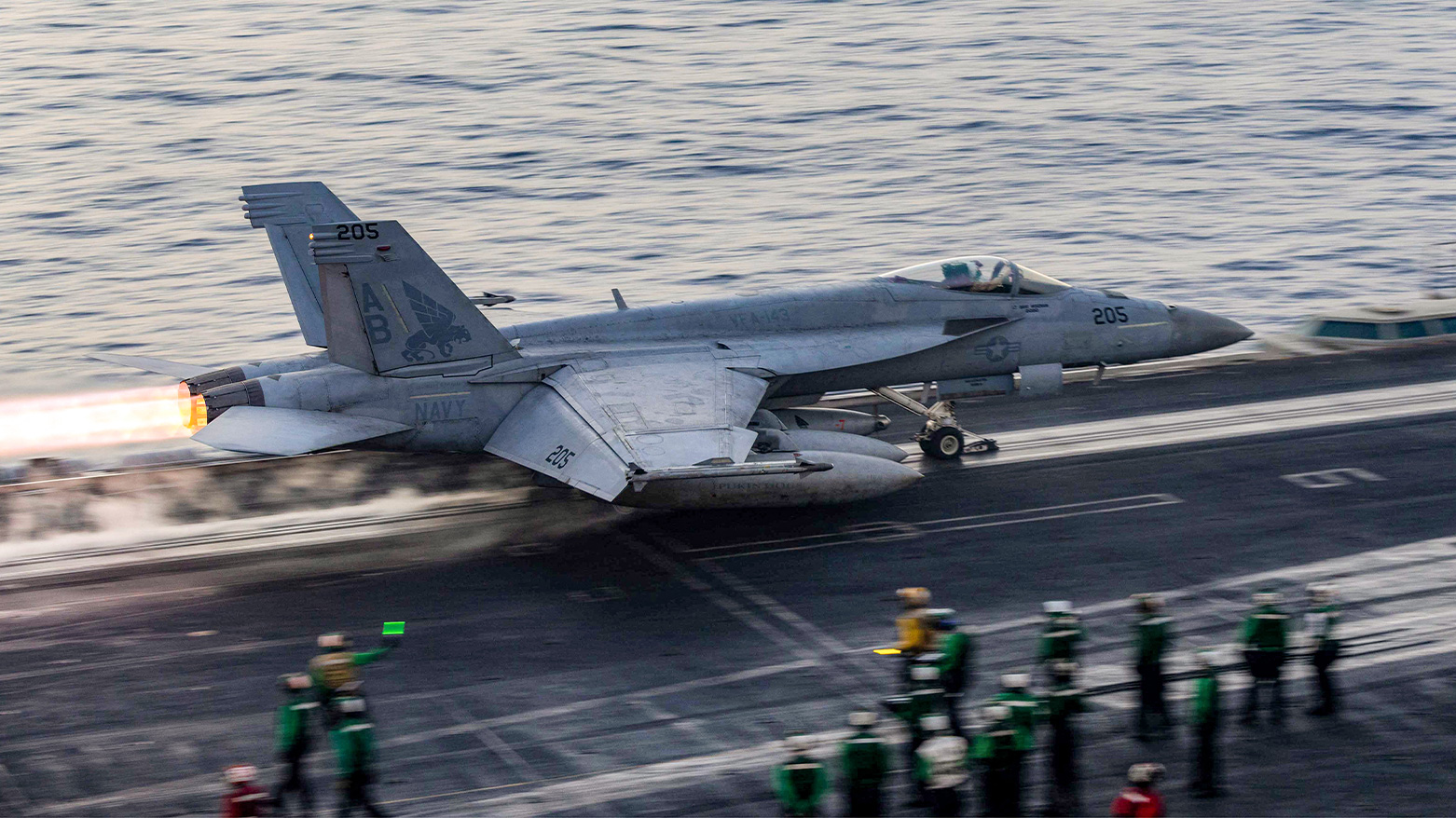U.S. Urges Israel to Avoid Retaliation, Vows to Handle Houthi Threat
Israeli authorities are expected to comply with the American request, foregoing airstrikes similar to those previously conducted by the Israeli Air Force, according to reports by Yedioth Ahronoth (YNET News).

ERBIL (Kurdistan 24) – The United States has urged Israel to refrain from military retaliation following a ballistic missile attack by Yemen's Houthi rebels, advocating instead for Washington to handle the response through its ongoing military operations against the Iran-backed group, according to senior Israeli officials.
Israeli authorities are expected to comply with the American request, foregoing airstrikes similar to those previously conducted by the Israeli Air Force, according to reports by Yedioth Ahronoth (YNET News).
Early Thursday morning, at approximately 4:00 a.m., Houthi forces launched a ballistic missile targeting central Israel. The projectile was successfully intercepted by Israeli air defense systems before entering Israeli airspace, with no injuries or damage reported. The Houthi militants claimed they had targeted Ben-Gurion Airport using what they described as a "Palestine 2" ballistic missile.
Security analysts note that while Israel has demonstrated its long-range strike capabilities in previous operations against the Yemeni group, such missions present significant logistical challenges, requiring mid-air refueling due to the considerable distance between Israel and Yemen.
The United States, which initiated a special military operation against Houthi targets earlier this week, possesses greater capacity to sustain attacks using aircraft stationed on its carriers, according to military sources cited by YNET News.
According to Jerusalem Post analysis, the latest attack on Israel represents an attempt by the Houthi rebels to demonstrate their continued operational capabilities despite several days of American airstrikes. The attack woke millions of Israelis with air-raid sirens, a scenario that had become routine in December and early January when Houthi forces launched missiles toward Israel every few nights.
The missile launch came shortly after U.S. President Donald Trump issued a stern warning to the Houthis, threatening they would be "completely annihilated" if they continued their attacks. President Trump also directed a message to Iran, the group's primary backer, demanding: "Iran must stop sending these supplies IMMEDIATELY."
Read More: Iran's FM Rejects Trump's Threats, Warns Against U.S. Escalation
In response to the escalating situation, the U.S. military has intensified its airstrikes against Houthi targets in Yemen. These operations aim to secure maritime routes in the Red Sea and have targeted strategic rebel positions, including weapons depots, missile launch facilities, and command centers in the capital, Sanaa, and surrounding areas.
Houthi Foreign Minister Jamal Amer stated on Tuesday that the group now considers itself effectively at war with the United States and warned of further escalation. In an interview with Reuters, Amer also issued threats to Gulf states, including Saudi Arabia and the United Arab Emirates, cautioning them against intervention while acknowledging their neutral stance thus far.
Reuters also reported that two senior Iranian officials indicated Tehran had twice urged the Houthis to de-escalate tensions, signaling concerns over the widening scope of the conflict.
The Houthi spokesperson, Brigadier General Yahya Saree, described the missile launch as part of "effective and responsible retaliation against U.S. aggression," claiming it marked the fifth consecutive day of such actions. The group also stated they have "intensified their efforts to target enemy warships in the Red Sea," including the USS Harry Truman aircraft carrier and accompanying naval vessels.
Security experts cited by Jerusalem Post suggest that the continued ability of Houthi forces to launch missiles despite the U.S. air campaign presents a significant challenge, drawing parallels to the "great Scud hunt" during the 1991 Gulf War, when coalition forces struggled to locate and neutralize Iraqi missile launch sites.
Since October 2023, Houthi attacks on Red Sea shipping linked to Israel—described by the group as acts of solidarity with Gaza—have disrupted global maritime trade, forcing vessels to reroute away from the Suez Canal and dramatically increasing insurance costs for shipping companies.
The Pentagon initially indicated that the military campaign against the Houthis could last for weeks. However, U.S. officials adopted a more measured tone on Tuesday, stating that Washington is not seeking regime change in Yemen and that airstrikes would cease once the Houthi group commits to halting its attacks on international shipping and neighboring countries.
